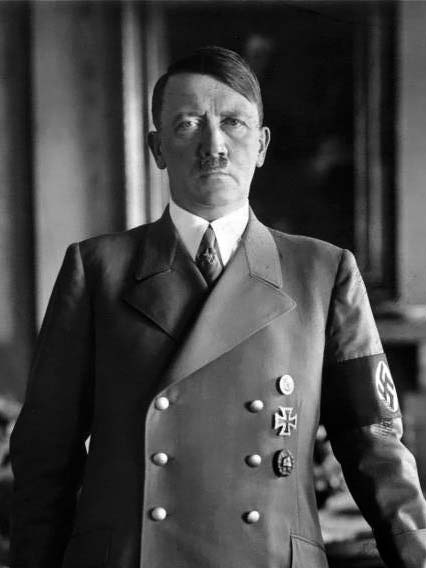 One of the most ominous words in world history would be the German term Führer. The reason it is so ominous is that it is a word associated with the most notorious dictator that ever lived, Adolph Hitler. Literally, no one else in German history is associated with this title and the word itself has become a colloquial pejorative. To call someone Der Führer usually indicates the person is incorrigibly tyrannical.
One of the most ominous words in world history would be the German term Führer. The reason it is so ominous is that it is a word associated with the most notorious dictator that ever lived, Adolph Hitler. Literally, no one else in German history is associated with this title and the word itself has become a colloquial pejorative. To call someone Der Führer usually indicates the person is incorrigibly tyrannical.
What actually is a Führer and where does the term come from? A closer look at the history of the word puts in its proper historical perspective and context.
The Meaning of the Word
In the German language, the word has two meanings: guide or leader. In modern Germany, the word is only used in the context of being a guide. The term is not generally used to describe a leader because of its association with Germany’s most nefarious leader, Adolph Hitler.
In Germany history, the word was not used by itself and was usually combined with the name of a political party. An example of this would be to refer to someone as the Führer of the German Workers’ Party. With Hitler, however, he would take the steps of referring to himself exclusively as Der Führer. Doing so was considered somewhat of a sign of arrogance, but Hitler saw this as a way of creating a cult of personality around his mystique as the leader of the Nazi Party.
Hitler and his Assuming of the Title
The first person to be referred to solely as Führer was Georg von Schönerer, a strong proponent of German nationalism in his native country of Austria. Hitler would become the first person in Germany to use the title in a similar manner although his official use of it, at first, would be as Chairman of the Nazi Party and, soon after, as Germany’s Chancellor.
Hitler’s use of the word would soon become prophetic as soon after becoming Chancellor, he would become the sole authoritarian leader of Germany. This was achieved after the passage of the Enabling Act which allowed Hitler to pass laws without any input from Parliament.
The Enabling Act and the Establishment of a Dictator
The Enabling Act was the eventual outcome of the Reichstag Fire, which was an arson fire that engulfed the Parliament building. The fire was blamed on communists that sought to overthrow the government of Germany. (It has never been proved conclusively that members of the communist movement in Germany actually started the fire) Hitler claimed that he needed sweeping powers in order to maintain public order and protect the German people. Many of these new powers eliminated civil liberties of the German people.
The ability to pass laws on his on accord minimized the power of Parliament. With many new sweeping powers acquired, Hitler had become the supreme leader of Germany. His official title would eventually be unofficially expanded to “Leader of the German Reich and the People.” The usage of titles of this nature further promoted the cult of personality that surrounded Hitler. The title was also one rooted in propaganda in the way it portrayed Hitler to the public.
Theory of the Master Race
There was also a racial component to the use of the word Führer. In particular, Hitler often employed the term Germanic Führer. This term was designed to present Hitler as the leader of the master race comprised of Germanic people. This would be most unsavory use of the title and it promoted a sense of racial superiority that contributed to the claiming of lost territory that was a major part of the Nazi Party’s foreign policy. Of course, this foreign policy also contributed to the decision to invade Poland and start World War II. Additionally, this theory of a master race also contributed to the Holocaust and Hitler’s Final Solution.
A Word Becomes Infamous
A once obscure foreign word has gained infamy on a world-wide basis. Upon looking at the history of the Nazi Party and its leader, Adolph Hitler, it is understandable why the word is so infamous. It represents a truly horrible period in world history. In many ways, the negative sentiment surrounding the word Führer forever lives as a symbol of a cautionary tale about abuses of power committed by totalitarian regimes.